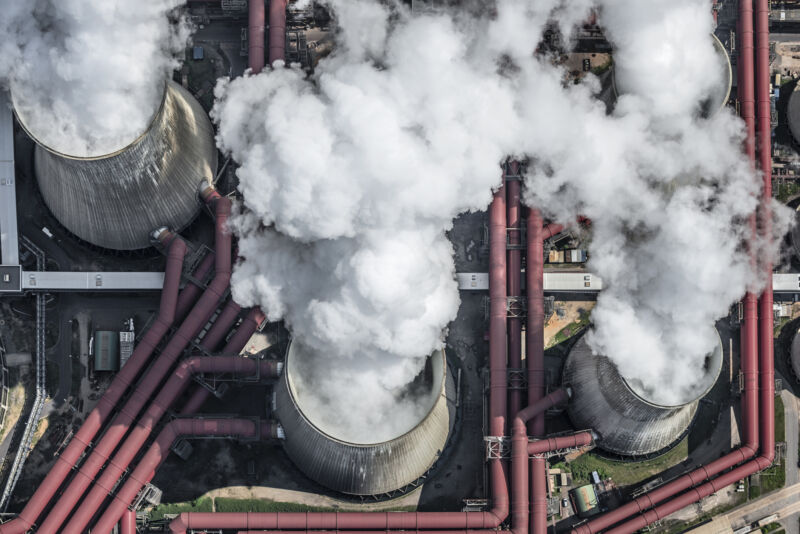You can’t stay here —
The EPA’s plan to cut carbon emissions from power plants can go ahead.

On Friday, the US Court of Appeals for the DC Circuit denied a request to put a hold on recently formulated rules that would limit carbon emissions made by fossil fuel power plants. The request, made as part of a case that sees 25 states squaring off against the EPA, would have put the federal government’s plan on hold while the case continued. Instead, the EPA will be allowed to continue the process of putting its rules into effect, and the larger case will be heard under an accelerated schedule.
Here we go again
The EPA’s efforts to regulate carbon emissions from power plants go back all the way to the second Bush administration, when a group of states successfully sued the EPA to force it to regulate greenhouse gas emissions. This led to a formal endangerment finding regarding greenhouse gases during the Obama administration, something that remained unchallenged even during Donald Trump’s term in office.
Obama tried to regulate emissions through the Clean Power Plan, but his second term came to an end before this plan had cleared court hurdles, allowing the Trump administration to formulate a replacement that did far less than the Clean Power Plan. This took place against a backdrop of accelerated displacement of coal by natural gas and renewables that had already surpassed the changes envisioned under the Clean Power Plan.
In any case, the Trump plan was thrown out by the courts on the day before Biden’s administration, allowing his EPA to start with a clean slate. Biden’s original plan, which would have had states regulate emissions from their electric grids by regulating them as a single system, was thrown out by the Supreme Court, which ruled that emissions would need to be regulated on a per-plant basis in a decision termed West Virginia v. EPA.
So, that’s what the agency is now trying to do. Its plan, issued last year, would allow fossil-fuel-burning plants that are being shut down in the early 2030s to continue operating without restrictions. Others will need to either install carbon capture equipment, or natural gas plants could swap in green hydrogen as their primary fuel.
And again
In response, 25 states have sued to block the rule (you can check out this filing to see if yours is among them). The states also sought a stay that would prevent the rule from being implemented while the case went forward. In it, they argue that carbon capture technology isn’t mature enough to form the basis of these regulations (something we predicted was likely to be a point of contention). The suit also suggests that the rules would effectively put coal out of business, something that’s beyond the EPA’s remit.
The DC Court of Appeals, however, was not impressed, ruling that the states’ arguments regarding carbon capture are insufficient: “Petitioners have not shown they are likely to succeed on those claims given the record in this case.” And that’s the key hurdle for determining whether a stay is justified. And the regulations don’t pose a likelihood of irreparable harm, as the court notes that states aren’t even expected to submit a plan for at least two years, and the regulations won’t kick in until 2030 at the earliest.
Meanwhile, the states cited the Supreme Court’s West Virginia v. EPA decision to argue against these rules, suggesting they represent a “major question” that requires input from Congress. The Court was also not impressed, writing that “EPA has claimed only the power to ‘set emissions limits under Section 111 based on the application of measures that would reduce pollution by causing the regulated source to operate more cleanly,’ a type of conduct that falls well within EPA’s bailiwick.”
To respond to the states’ concerns about the potential for irreparable harm, the court plans to consider them during the 2024 term and has given the parties just two weeks to submit proposed schedules for briefings on the case.